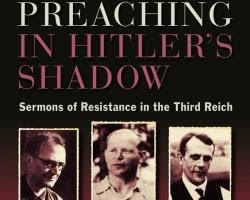Many who watch political discourse have noticed an alarming trend. Increasingly, pundits and policymakers paint an opposing position as “religious” and then dismiss that position out of hand—as though the position itself violated the so-called “separation of church and state.”
This attitude stifles public discourse. Not only is the “separation of church and state” an extra-constitutional dogma. It misinterprets the legitimate and necessary distinction between church and state. Worse, it disrespects fellow citizens at the very core of their being—their deepest identity.
This trend was on full display last March when the “trigger bill” (HB 92) was being debated on the floor of the senate. It also appears regularly in anti-religious screeds on the opinion page—often, but not always, in connection with abortion. There are three things seriously wrong with such arguments.
First, the claim that a child in the womb is a living human being, protected under Article I, Section 2 of the Wyoming Constitution, is not a religious claim. It is a medical claim. You can test it by checking to see if the DNA is human. You can test it by looking for signs of life—like a heartbeat. You can test it by seeing if a separate and unique individual exists.
None of these medical markers requires an act of faith. What requires an act of faith is to believe that a living human being does not merit full protection in law. Usually, this claim is connected to “personhood theory.” This dogma holds that not every human life is equal, but that there is an unseen and uncertain quality that some people have that makes them full persons under the law.
The Supreme Court recently pointed out, in Dobbs v. Jackson, that it is unacceptable to “impose on the people a particular theory about when the rights of personhood begin” (p. 38). This—and not the demand for equal protection under the law—is tantamount to the establishment of religion.
Second, the U.S. Constitution was written precisely to allow people of all religions to participate in public discourse and to hold public office without discrimination. Since ancient times, governance and religion were joined at the hip. Only adherents of the dominant religion could have any say. Before Constantine, governing privilege required public adherence to the Roman gods.
After Constantine, sometimes the Christians were in power and sometimes their pagan counterparts. Eventually, governance stabilized around Christendom until the Reformation of the 16th century. That made some governments Catholic, others Reformed, and others Lutheran.
But America’s founders changed course entirely. They explicitly invited every person to use the power of persuasion to convince fellow citizens of the rightness of their beliefs. Quaker, Episcopalian, Catholic, or Jew—every citizen could enter public office without first passing a religious test (U.S. Constitution, Art. VI).
The assumption was that each citizen would fully represent his or her religion in the public square and build consensus on the basis of commonality. Nobody thought that religious people had to hide their deepest and most meaningful thoughts to be taken seriously in policy debates. The ideology of “Secularism” was not even invented until George Holyoke introduced the term in 1851.
Third, religious neutrality is a lie. Every assertion is, ultimately, a religious statement. It rests on unspoken assumptions about the nature of the universe. Even the statement, “two plus two is four,” assumes that “is” means “equals,” and not merely “similar.” It assumes immutability—that it will always equal the same amount. It assumes that language has actual, objective meaning. These assumptions are unapologetically religious.
All public discourse is religious. It’s time to stop pretending otherwise. Secularist claims should not be privileged over Christian claims. The only privilege any claim merits is the power of persuasion.
That was the foundational idea of America. People are not excluded from the debate because they refuse to expunge God from their vocabulary. Claims about the nature of life, marriage, family and citizenship can, and should be, debated in the public square. We owe that courtesy to our fellow citizens.
It is legitimate to question beliefs and challenge fellow citizens to defend their beliefs in the court of public opinion. Faith, after all, is adherence to the truth. It does no one good to outlaw the testing of truth claims. But it is a disservice to public discourse to disallow an otherwise true argument just because it has religious adherents. Let’s talk.










